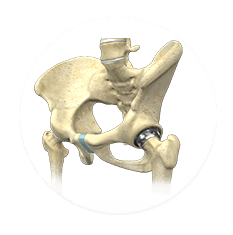Source:
MedscapePlatelet-rich plasma (PRP) injections might be more helpful to athletes with jumper's knee than focused extracorporeal shock wave therapy (ESWT), according to Italian researchers.
Dr. Mario Vetrano told Reuters Health by email that both approaches “seem to be safe and promising as part of the treatment of jumper's knee patients. However, both treatments share the same disputes: lack of hard evidence through randomized clinical trials and no standardized treatment protocols.”
To compare outcomes, Dr. Vetrano and colleagues at Sapienza University of Rome studied 46 athletes with tendinopathy due to overuse of the knee extensor mechanism.They randomized their patients to receive either two autologous PRP injections over two weeks under ultrasound guidance, or three sessions of focused ESWT. Both groups then went on to a standardized stretching and muscle strengthening protocol.
Given minimal or no pain after four weeks, patients were allowed to gradually return to previous training activity. Complete return to sports took place in accordance with the patient's pain tolerance and recovery.
A blinded reviewer made assessments before and up to 12 months after treatment. The findings were published online February 13th in The American Journal of Sports Medicine.
Both groups showed benefit, and there were no significant between-group differences in outcome measures at two months. No clinically relevant side effects were seen in either group.
However, at six and 12 months, the PRP group showed significantly greater improvement in Victorian Institute of Sports Assessment-Patella questionnaire and pain visual analogue scale. At 12 months, the PRP group also had significantly better modified Blazina scale scores.
Both approaches seem promising, but “given current knowledge,” say the investigators, “it is impossible to recommend a specific treatment protocol.”
Nevertheless, as Dr. Vetrano concluded, “The analysis of our study showed comparable results in both treatment groups at short term, with better results in the PRP group at six and 12 month follow-ups.”




